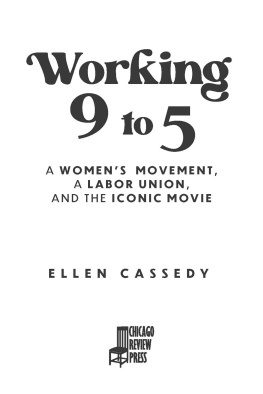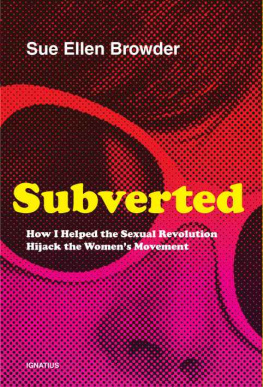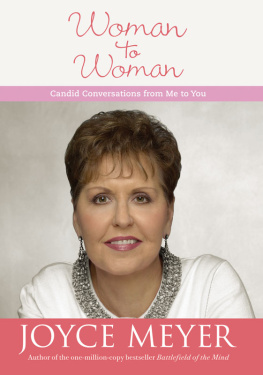PREFACE
The literature upon the right and the worth of woman, beginning as early as the 15th century, has in recent times increased so enormously that a complete collection would require a whole library building. In these writings are represented all classes, from tables of statistics to comic papers. Not only both sexes but almost all stages of life have contributed to it. By immersing oneself in this literature, especially in its belletristic and polemic portions, one could find rich material for the illumination of that sphere to which the publisher limited my work: the indication of the new spiritual conditions, transformations, and reciprocal results which the woman movement has effected. Historic, scientific, political, economic, juridical, sociological, and theological points of view must, therefore, be practically set aside. But even for my task, limited to the psychological sphere, time, strength, and inclination are wanting to bury myself in this literature. I must, therefore, confine myself to giving chiefly my own observations.
It is more than fifty years ago that I read Hertha, Swedens first feministic (dealing with the woman question) novel, and listened to the numerous contentions concerning it. With ever keener personal interest I have since followed the operations of the woman movementabove all, the new psychic conditions, types, and forms of activities which the woman movement has evoked; I have also given consideration to the new possibilities and new difficulties resulting therefrom for individuals and for society.
The limited compass of this little book prevents me from substantiating my assertions by means of parallels with earlier times, comparisons which might illuminate certain spiritual transformations and new formations. My comparisons of the present with the past do not go farther back than my own memory reaches. And these touch, moreover, in what concerns the past, principally upon Swedish conditions; while my impressions of the present were gathered throughout Europe. I have considered, however, that I could summarise both in a comprehensive picture. For although the women of Sweden a generation ago possessed rights for which the women in many countries are still struggling to-day, yet the woman movement in the last decade has advanced so rapidly that the conditions have in great measure been equalised. Indeed, some of the grey-haired champions of the woman movement have seen one after another of their demands fulfilled in this new centurydemands which in the fifties and sixties, in many countries even in the seventies and eighties, were publicly and privately derided even in the very person of these champions. And among peoples who even ten years ago were unaffected by the emancipation of women, for example the Chinese and the Turks, it is already progressing. It amounts to this, that even if national peculiarities in character and in laws occasion differences in the curve which the woman movement describes in the different countries, yet everywhere the movement has had the same causes, must follow the same main direction, andsooner or latermust have the same effects.
In Hertha, the book containing the tenets of the Swedish woman movement, the demand is made for womans freedom and future, and a home for her spiritual life; the desire is expressed that women should preserve the character of their own nature, and not be uniformly moulded, not be led by a string as if they had not a soul of their own to show them the way. There must be vital air for womans soul and a share in lifes riches. It is to be lamented that womans spiritual talent must be a field that lies fallow, that the law denies her free agency in seeking happiness. The prerogative is demanded that woman in noble self-conscious joy shall succeed in feeling what she is able to do now and what she is capable of attaining; that she shall be free to aspire to the heights her youthful strength and consciousness point out to her; that she may be fully herself and be able to exercise an uplifting, ennobling influence upon the man to whom she says: All that is mine shall be thine and thereby the portion of each shall be doubled.
Even if all fields are made accessible to them, Gods law in their nature will always lead the majority of women to the home, to the intimacy of the family life, to motherhood and the duties of rearing childrenbut with a higher consciousness. That women shall be citizens signifies that they shall become human beings in whom the life of the heart predominates.
This picture of the future, which has already become a reality in many respects, was sketched at a time when innumerable women were still compelled to experience that there is no heavier burden than lifes emptiness, and when it was true of every woman, dark is her way, gloomy her future, narrow her lot.
But because that which is, is always considered by the masses as that which ought to be, whatever is, is right, so the writer who painted the picture was called dangerous, a disintegrator of society, mad, ridiculous! Mademoiselle Bremers name possessed then quite a different intonation from that of Fredrika Bremer now; it caused strife between the sexes; it was hated by some and derided by others.
I should like to advise young women of the present time to read Hertha; they will thus obtain a criterion for the progress which has taken place during the last half century and also a clear view of the character of the opposition which the present desire for progress encounters.
Ellen Key.
October 1, 1909.
INTRODUCTION
There can be little doubt that at the present moment what is called the Womans Movement is entering a critical period of its development. A discussion of its present problems and its present difficulties by one of the most advanced leaders in that movement thus appears at the right time and deserves our most serious attention.
The early promulgators of the Womans Movement, a century or more ago, rightly regarded it as an extremely large and comprehensive movement affecting the whole of life. They were anxious to secure for women adequate opportunities for free human development, to the same extent that men possess such opportunities, but they laid no special stress on the abolition of any single disability or group of disabilities, whether as regards education, occupation, marriage, property, or political enfranchisement. They were people of wide and sound intelligence; they never imagined that any single isolated reform would prove a cheap panacea for all the evils they wished to correct; they looked for a slow reform along the whole line. They held that such reform would enrich and enlarge the entire field of human life, not for women only, but for the human race generally. Such, indeed, is the spirit which still inspires the wisest and most far-seeing champions of that Movement. It is only necessary to mention Olive Schreiners Woman and Labour.










